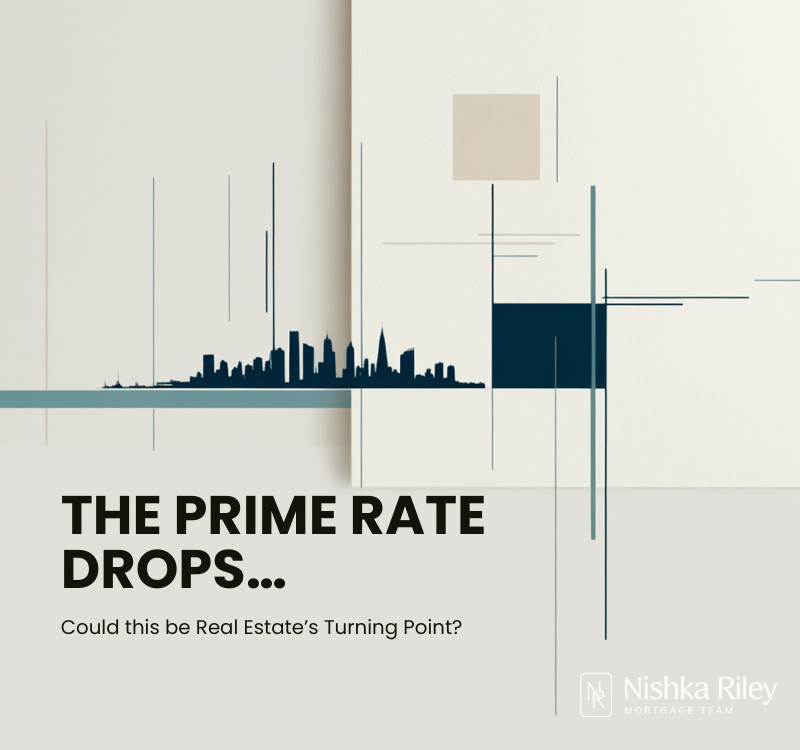
Mortgage Rate Update – Know Pain, No Gain
July 12, 2023
Rate Update – The Economy Softens but Governor Tiff Remains Firm
October 25, 2023Welcome back!
I trust you had a wonderful summer and managed to fit in some quality play time! To help ease the transition from a playful summer to a busy fall, the Bank of Canada Governor Tiff Macklem decided not to increase the prime rate today! That’s welcomed news for those parents who just finished running the consumer gauntlet of getting their kids ready for school!
So the big question now hanging out there – is Tiff done?! The verdict from the economists? A resounding…maybe.
(Keep in mind that if you lay all the world’s economists head to toe, they still wouldn’t reach a conclusion!)
Here is a quick summary of the good, the bad and the ugly of today’s press release:
The Good:
- Inflation around the world is cooling
- This could be a catalyst for lower mortgage rates in the future.
- Housing prices are cooling in most areas of Canada ( as usual, prices seem sticky here )
- A slowing housing market makes people think twice about spending money, which is good for inflation.
- The BOC is seeing more and more signs of supply being greater than demand
- This is a positive sign that things are slowing, and inflation could be at the beginning of a downward trend.
The Bad:
- The US is still experiencing strong inflation
- This is why mortgage rates have been going up since March in Canada.
- Europe has seen growth in the service sector this quarter.
- Is it just me, or was I the only person who didn’t go to Europe this summer?! The good news is manufacturing is down, so this could be a seasonal increase.
The Ugly:
- Our government continues to spend money like a teenager who got their first paycheck!
- This is the 2nd time the BOC has mentioned government spending as an inflationary item.
- The USA will likely raise rates in their next meeting
- This will have an impact on our dollar, which in turn will affect our purchasing power and also potentially limit mortgage rate decreases in the near term.
This leads us to the million dollar question: What should you be doing with your mortgage?
This is where things get confusing because there are two competing messages coming from the big bank economists. The first is that the economy is at a crossroads and shows the early warning signs of a recession. If a recession does occur, mortgage rates could fall by 1% to 1.75% shortly after. The second message is that Governor Tiff is super stressed about inflation being entrenched and is willing to increase rates one or two more times to ensure that doesn’t happen. If this happens we can expect it to be 3 years before we get down to a sub 4.25% mortgage rate for a 5 year fixed.
So, with these two opposing schools of thought, here are some options to consider:
The possibility that rates will take three years to get to sub 4%:
If you have 2 – 3 years left in your mortgage, then you can expect your payment to increase by about $425 for every $500,000 of mortgage you have. To offset this looming increase, start creating room in your household budget now, and also start contributing your TFSA so you have savings to draw upon to support the higher mortgage payment down the road.
Your mortgage is coming up for maturity in the next few months:
To reduce the payment shock for our clients, increasing their amortization (the total time to pay off your mortgage) is the most effective option. An increase of 5 years to your amortization will reduce your payment by $245/month for every $500,000.
You don’t know how much longer you can take these rates.
For some of our clients, increasing the amortization isn’t quite enough. They need a more flexible product that will allow them to have lower monthly payments and access the built-up equity in their homes. In these situations we have exclusive access to a few lenders that allow you to make interest only payments as well as access the principle portion of the mortgage payment you make each month. It’s not an ideal situation since it means you aren’t making any progress on paying down your mortgage, but it is better than paying higher credit card interest rates.
You are coming up for renewal, and you want payment security of 5 year fixed mortgage, but what if rates go down next year?
This is the most challenging question we face, and it leans into the belief that it might take three years to get down to a 4.25% rate. The good news is we have a number of solutions, one of them being our access to non bank lenders who have a much less painful penalty calculation. This allows you to take a 3, 4 or maybe 5 year term and break out of it if the rates drop prior to your maturity. Usually the rule of thumb with the non bank lenders is if you can lower your rate by 1.25% and have more than 18 months left to the maturity in your current term, the savings from the lower rate will offset the penalty to break out of the mortgage.
We also have access to lenders that will let you ladder mortgage terms and products, so in some cases, we have split the mortgage up into 4 sections. This allows our clients to create a hedge against rising rates, but not close the door to falling rates. What is even better about these non bank lenders is they often have better rates than the big 6 banks!
The Bottom Line:
Though we still have some road to travel, we are almost at the end of this inflationary journey. Governor Tiff’s tone has become more subdued than it was this time last year. And if the inflation figures that are due in the next two weeks fall in line, my next update could finally have a positive tone!
Before I sign off, I want to offer that if you are feeling stressed about your finances please, please, please call me or click here to ask to schedule a mortgage review. We have so many options to make sure you can weather this storm…and sometimes, just talking to someone is a huge help.
Keep well!

The next Bank of Canada meeting is October 25th, 2023
Did you Like this post? Then you’ll Like my Facebook Page. It’s filled with current news on what’s going on in the world of real estate.




